Water, Sanitation and Hygiene in Buikwe, Uganda (2021-2024)
Clean water and sanitation are necessities for life.
Despite this, an estimated 844 million people around the world still do not have a source of safe water near their homes and a further 2.3 billion people do not have access to a toilet.
Unsafe water and poor sanitation are some of the largest barriers to eradicating extreme poverty.
Where we are working in Buikwe, Uganda, 50% of the population (430,000) do not have access to clean water and 40% of families do not have access to a toilet.
This can lead to some difficult choices to make. Should families spend hours each day walking, collecting and carrying water from far away sources for clean water? A family will need about 20litres per person for drinking, washing, cleaning and cooking. Or should they be tempted by a water source nearer to home that isn’t safe and risk catching dangerous diseases?
International Needs WASH Water Project.
In 2016 we began a pilot programme in Buikwe to support families with water, sanitation and hygiene initiatives. Through the pilot programme we supported over 9,000 people with improved access to safe water, built 34 toilets, and reached over 1,262 children with hygiene and sanitation education in schools.

Through the Water Project, Jessica and her two grandsons have been supported with new toilets at their home. Read their story of hope on our blog.
Transformation for 12 villages
In 2018 we began a scaled-up Water Programme working with 12 villages in Najjembe Sub-County and Buikwe Town Council (a total population of 15,979 people).
From 2021 to 2024, we are working to provide villages with a holistic water support package, tailor-made to the needs of families and the community, seeking to benefit 60,584 local people. This will provide:
- New borehole wells and pumps
- Rehabilitating damaged water sources
- Building toilets and other sanitation facilities with families and schools
- Hygiene and sanitation education programmes in schools and with the community
- Training and ownership- each village will have an elected group of individuals form a committee to manage local work and receive specialised training.
To achieve this, we need to raise £25,000 per village.

A member of the IN Uganda WASH team running a community mapping meeting. Through working with the community to map their villages we can ensure the programme is tailored to the needs of each community and the most vulnerable families can be prioritsed to recieve support.
Progress update – November 2023
The original plan was to drill ten new boreholes, but government policy prohibited drilling in six villages because of the introduction of piped water. In a further twist, the funding for the piped water project fell through, so the ban was eventually lifted. It has, however, delayed access to clean water for many community members.
Three boreholes have been successfully completed, with two more being worked on presently.
Road safety has also proven to be a significant issue, with children and young people having to cross a major road in one of the settlements in order to access clean water. Following the tragic death of a young person in a road traffic accident, agreement was found to move one of the boreholes to a location where crossing a road was not necessary for the majority of villagers.
The project continues until September 2024.
Uganda
Water
Key facts
- 60% of children in Uganda live over 30 minutes’ walk from a water source (UNICEF, 2015).
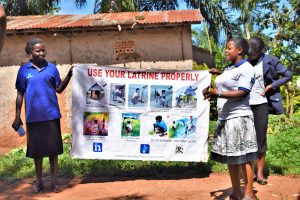
Where we work in Buikwe:
- 50% of the population do not have access to safe water
- 40% of families do not have access to a toilet
Access to clean water and good sanitation facilities can change almost every aspect of daily life.
Health
Sadly, waterborne diseases are still prevalent in rural areas like Buikwe; every year over 4,500 children in Uganda die from diarrhoeal diseases caused by unsafe water and poor sanitation. An estimated 88% of cases of diarrhoeal diseases are preventable with safe drinking water and improved hygiene and sanitation.
Education
Lack of proper sanitation facilities in schools has led to high numbers of children missing school due to illness. Children will leave their studies due to waterborne disease, caring for sick family members, or to collect water.
Income and poverty
Poor families bear more of the burden of unclean water and poor sanitation. The poorest 20 percent of the Ugandan population are over 13 times more likely to defecate in the open than the wealthiest 20 percent. This puts them at significantly higher risk of diarrhoeal diseases. With a lack of funds to build toilets for their families, and hours of time lost to collecting water and sickness, this is a self-perpetuating cycle keeping the poorest families trapped in poverty.
Women
The impact of unsafe water and poor sanitation disproportionally impacts women and girls. Typically, women and girls are expected to collect water for the family each day, paying with their time and lost opportunities.
Even at school, this can cause problems for young women. Many schools lack adequate toilets with privacy. The majority of girls do not have access to sanitary pads or personal cleaning facilities. These issues combined with persisting social stigma, mean many girls will instead opt miss school due to the shame and difficulty of having their period.
Help support our efforts
Donate today and help our ongoing work to improve the lives of families around the world. By supporting our different areas of development, your generosity will deliver impact and real change.
donateproject updates
January 30th, 2023
Eltham College – A Trip to Uganda, by Nabila
Hi everyone,
My name’s Nabila, and this time around 4 years ago now, I was sat in a presentation much like this, about to make an amazing decision just as you all have the option to.
I decided to embark on a once in a lifetime opportunity and before I left for the trip, I was of course apprehensive. I was about to travel to a part of the world I had never been to, and although I had some nerves, I was excited to immerse myself in a different culture and really get involved in the wonderful work that International Needs do. A lot of preparation was involved, and we really were given a good understanding of what our purpose was when we got to Uganda.
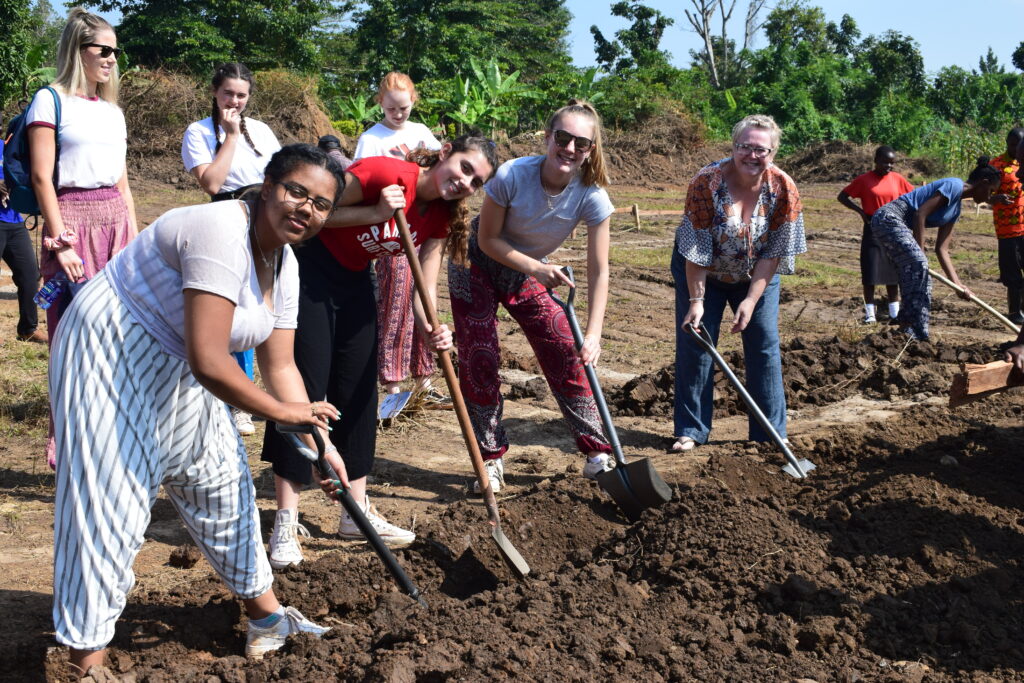
Eltham College students helping to dig the ground for a new girls dorm in Uganda
In July 2018 I travelled to Buikwe, a village in Uganda accompanied by my friends, teachers, and International Needs. Without a doubt it was one of the most incredible, enriching trips I think that I will ever be lucky enough to go on. After a long, but exciting journey to Uganda we arrived at the guesthouse and from the moment we were there, we felt completely welcomed into the community. From day 1 we were learning new things whether it was helping to build water resources in rural villages, attending church services, playing netball with the children at the local school or trying some of Uganda’s famous dishes. We had a lady called Irene cook for us in the guesthouse and honestly her food was quite phenomenal!

Group photo of Eltham College students
You will experience so much on this trip and getting to take part in the work that international needs do is truly inspiring, and you feel like you are actively making a difference to people’s lives. Throughout the trip you meet families and visit different schools and villages in the area, we were fortunate enough to join one of their lessons which was a great experience. One of my most poignant memories was helping to fill up buckets of water for people in the village and their families. It was devastating to hear the risks that these children, particularly girls face on this essential trip, yet they were grinning from ear to ear, giggling as us 16–17-year-olds struggled with the litres that they carry without complaints. But it showed the reality of life for some children in Uganda and really highlighted why trips such as these are important.
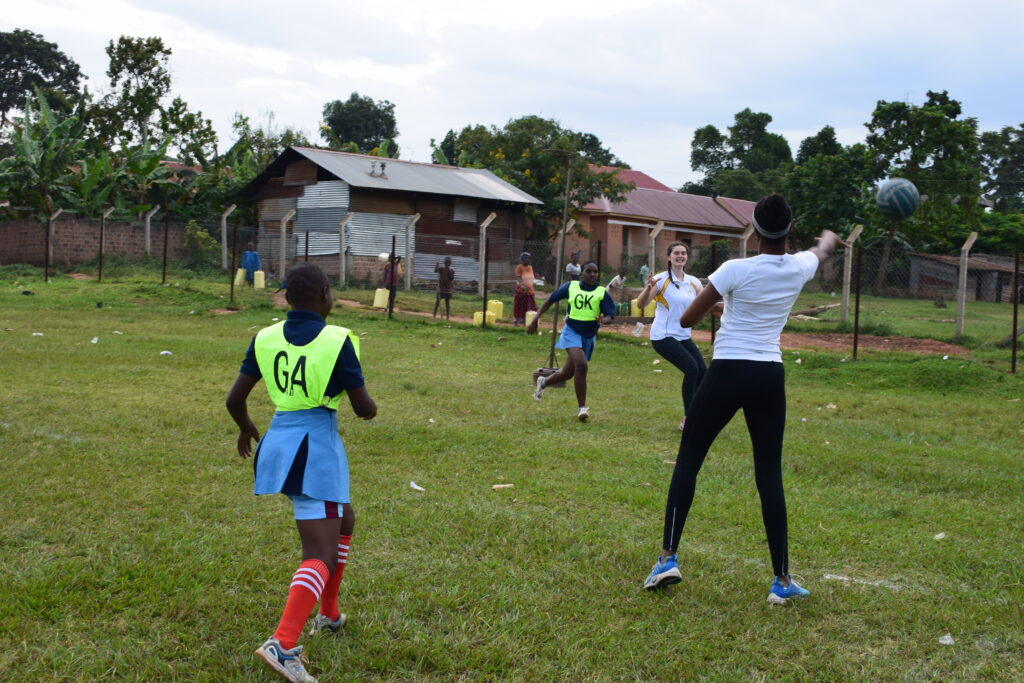
Students playing sports with young people from the local school
Upon my return back home, I took away a lot from this trip. The memories I made will last a lifetime, and I often discuss my time in Uganda with my peers that went with me as well as many others. There was a lot of fun and laughter, equally, there was moments that made me become more reflective on our privileges and what more should be done to help others who are facing the challenges of those faced in Buikwe. I have carried my experiences from Uganda into my adult life; I gained many valuable lessons, some of them include how important gratitude is and I realised how much we often overvalue materialistic items and get caught in things that don’t matter in the long run. In Uganda you will realise the culture is centred around valuing one another, I gained a perspective I would never have gotten had I not joined this trip, and it really opened up my eyes to a different way of life.
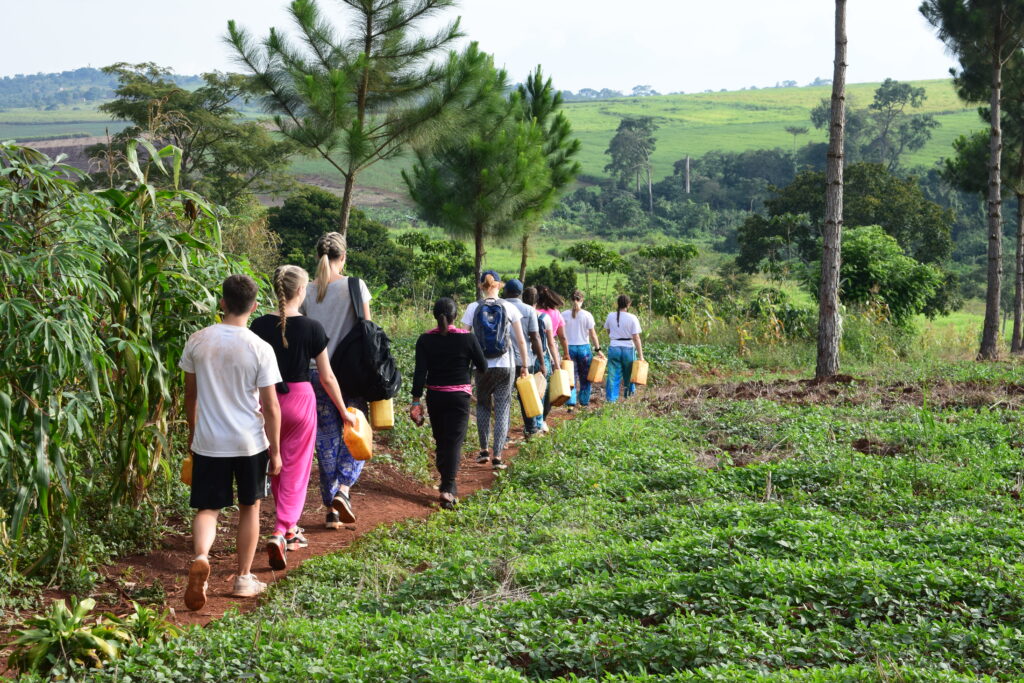
Helping to fill up buckets of water for people in the village and their families
I want to end by saying that the link we have with Eltham College and Uganda is so important and it helps all of this wonderful work to happen that really helps and changes lives. I hope that as a school and within the community at Eltham we can continue to support international needs and I wish the best of luck to the group visiting this year.
Thank you all for listening.
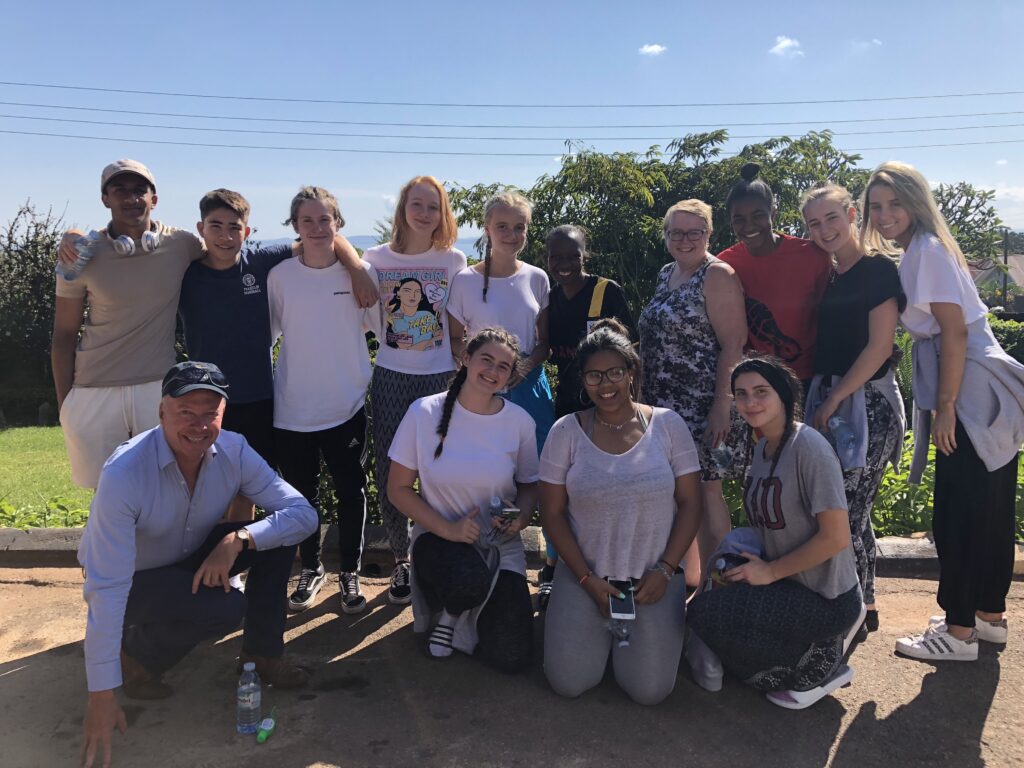
Group photo!
Nabila, former Eltham College student who went on a GoGlobal to Uganda with International Needs
June 7th, 2022
New Tank for Bright Secondary School, Uganda
The future is looking brighter at the Bright School in Bujaaya Village!
IMPROVED ACCESS TO WATER RESULTS IN A REDUCTION IN LOST TEACHING HOURS
In many schools in Africa, children miss out on school teaching in order to collect water to be used by their school population. They often travel great distances to collect water from often unprotected water sources such as rivers, ponds and lakes leaving them less time to attend school.
Recently we were able to change the lives of 106 children (plus the school staff) by installing a 10,000 litre water harvesting tank at Bright Secondary School in Bujaaya Village. This water is now available to the school population for the purposes of hand washing and cleaning of the school premises. Thank you to everyone supporting our Water Project in Uganda!

March 16th, 2018
Story of Hope: Jessica’s story

Jessica and her two grandsons.
Jessica lives in Buikwe Uganda and looks after her two grandchildren after their parents sadly died from HIV/Aids. Her grandsons rely on her to provide for all their basic needs such as food, school, water and healthcare, but Jessica has parkinsons disease so this can be very difficult.
October 10th, 2017
The Burden of Thirst
In 2016, International Needs met ten year old Eric (waving in the photo) and his family. He lives in Buikwe District in Uganda. Every day before school he had to walk for two hours to collect water for his family.
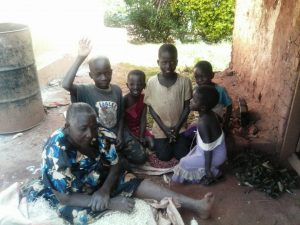
October 11th, 2016
Water Update – the W.A.S.H Uganda programme is under way
October 11th 2016